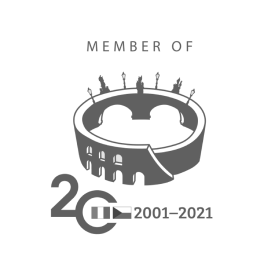
Analyzing the Czech Real Estate Landscape: Trends and Future Outlook
[lwptoc]
It seems like the frozen housing market is challenging earlier predictions, with experts now anticipating that speculators will play a significant role in driving up apartment prices in the upcoming spring.
Despite initial conservative forecasts suggesting a potential decrease in apartment prices, the reality turned out to be different. Contrary to predictions, the housing market has not experienced the anticipated decline. Instead, over the past year, the medium price for an average Czech apartment has increased from 4.34 million crowns to 4.48 million crowns.
This trend suggests a strong market and the potential for further increases, possibly driven by speculators entering the scene in the coming spring.
Data provided by SZ Byznys in collaboration with the real estate server Reality Čechy however indicates regional heterogeneity in the Czech housing market. In particular, while specific regions like the capital, Central Bohemia, and South Moravia have experienced an increase in apartment prices yearly, the situation is different in other regions where prices have fallen. In particular, the Zlín Region experienced a substantial decline in apartment prices, with the average dropping by a quarter of a million crowns in just one year.
This regional disparity highlights the complexity and localized nature of the housing market, with various factors contributing to contrasting trends in different parts of the country.
Apartment Prices Hold Steady Amid Low Supply and Seller-Buyer Standoff
The limited confined decline in apartment prices, compared to the significant drops observed after the mortgage crisis 12 years ago, can be attributed to several factors, with the scarcity of available properties being a key contributor.
According to Libor Ostatek, an expert from Broker Trust and Golem Finance, the current market is characterized by an exceptionally low availability of properties representing only 36% of the properties available during the peak supply between 2010 and 2012 and this can create a more competitive environment where demand far exceeds supply, exerting upward pressure on prices.
Additionally, a crucial role has also been played by a standoff between apartment owners and potential buyers implying unwillingness from sellers to meet buyer expectations. Indeed, unlike the 2009-2012 crisis, many owners opted to wait rather than sell, avoiding large discounts and thus forced sales.
Czech Republic’s Housing Landscape: Balancing Affordability, Pandemic Influences, and Market Dynamic
The shift in the ratio of mortgage repayments for an average apartment to net income from 46% to the current 62% indicates a significant increase in the financial burden associated with housing costs in the Czech Republic where ideally, financial experts recommend that individuals allocate no more than one-third of their net income towards mortgage repayments.
On the other hand, the drop in interest rates due to the COVID-19 pandemic has likely led to more accessible and cheaper mortgages leading to increased demand for housing and potentially driving prices higher. This, in conjunction with the removal of the 4% property acquisition tax and loosened mortgage parameters contributed to increased demand for housing and housing overpricing.
Moreover, the pandemic has led to changes in spending patterns, with some individuals saving more money during lockdowns and restrictions. The accumulation of financial reserves can empower people to enter the housing market with larger down payments or increased purchasing power, further influencing housing demand and prices.
Anticipating a Shift: Savings Moving Towards Apartments
Currently, savings are still mostly resting on current but according to experts, they will soon start moving into apartments again.
Particularly, as interest rates on deposit accounts drop, investors will likely redirect their cash reserves to the real estate market leading to increased demand for apartments which will push apartment prices up again.
The decreasing difference between the listed prices of apartments on portals and their actual selling prices is seen as a signal that the market is about to turn and sellers may become more aligned with realistic market values.
A more significant recovery in the real estate market may be seen at the end of the first quarter, supported by moderate inflation, a progressive fall in interest rates, and a psychological relaxation in the general market environment.
Cash Buyers Fuel Real Estate Market Surge Amidst Mortgage Challenges: Stabilization or Future Price Growth?
People who can afford it and don’t have to rely on still-expensive mortgages are already buying.
The market is being driven by buyers who have the financial capacity to make cash purchases without having to rely on still-expensive mortgages and who may have speculated on a price drop
However, according to Milan Roček, the speculative window has closed as the price level has already reached its floor.
Concerning those who wanted to buy but couldn’t without relying on a bank, recent interest rates for mortgage loans in the Czech Republic constituted an important obstacle. Although in December 2023, The Czech National Bank began dismantling high-interest rates after a year and a half of stagnation at 7%, it communicated that the decrease will be slow and take place at a gradual pace, clearly to ensure stability in the financial system while making borrowing more affordable.
According to Libor Ostatek, by the end of the year, it is predicted that more than half of mortgages could be granted at a rate close to 4%. While, on the other hand, the most popular housing loans with a three-year fixation may not see significant discounts.
In conclusion, while interest rates are expected to decrease, the notion of super-cheap loans, as seen in the past, is unlikely to return. Central bankers want now to emphasize the value of money and avoid the mistake of assuming that money will be free.
Source: https://www.seznamzpravy.cz/




